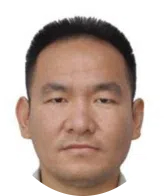Special Session 5 会议特别专题 5
Synthetic Aperture Radar Signal, Information Processing Technology and Application
Description: Synthetic Aperture Radar (SAR),
with its all-day, all-weather, and global
observation capabilities, has become an
indispensable device for Earth observation across
diverse environmental conditions. Currently, SAR has
achieved significant technological breakthroughs in
the following critical aspects: resolution
enhancement from meter-level to submeter-level,
imaging mode evolution from conventional stripmap
mode to advanced azimuth beam steering techniques
like spotlight mode, system expansion from
single-channel to multi-channel architectures, and
polarization advancement from basic
single-polarization to comprehensive
full-polarization measurements. Without doubt, these
progresses will expand SAR's observational
dimensions across spatial, temporal, and
polarization domains, ultimately enabling
comprehensive multidimensional information
acquisition, and achieving further breakthroughs in
signal and information processing. Thus, this
special session aims at studies covering SAR signal
and information processing, and its applications in
remote sensing. The integration of advanced SAR
processing techniques—such as signal processing,
image processing, and machine learning—is essential
to promote and guide the further development and
application of SAR technology.
Session organizers
Assoc. Prof. Sinong Quan, National University of
Defense Technology, China
Assoc. Prof. Tao Zhang, Shanghai Jiao Tong
University, China
Assoc. Prof. Huizhang Yang, Nanjing University of
Science and Technology, China
The topics of interest include, but are not limited to:
▪ Advancing SAR Imaging
▪ SAR Imaging Jamming and Anti-jamming
▪ SAR/PolSAR Target Detection and Recognition
▪ Target Scattering Characteristic Analysis for
SAR/PolSAR Images
▪ SAR/PolSAR Signal and Image Processing
Submission method
Submit your Full Paper (no less than 5 pages with two colums) or
your paper abstract-without publication (200-400
words) via
Online Submission System, then choose Special
Session 5 (Synthetic Aperture Radar Signal,
Information Processing Technology and Application)
Template Download
Introduction of
Session organizers
 Assoc. Prof. Sinong Quan,
National University of Defense Technology, China
Assoc. Prof. Sinong Quan,
National University of Defense Technology, China
Sinong Quan is currently an Associate Professor with
the College of Electronic Science and Technology,
National University of Defense Technology. Dr. Quan
has authored more than 60 papers in peer-reviewed
journals, co-authored 3 books, and holds more than
10 patents, among many conference papers. He has won
3 provincial and ministerial scientific and
technological progress awards. He is the guest
editor of Remote Sensing, Electronics, and other
international journals in the remote sensing field.
Dr. Quan currently serves as a Reviewer for the
ISPRS JPRS, IEEE TGRS, IEEE TCSVT, IEEE TCOM and
several other journals. His current research
interests include SAR\PolSAR information processing,
SAR\PolSAR imaging and recognition, and machine
learning.
 Assoc.
Prof. Tao Zhang,
Shanghai Jiao Tong University, China
Assoc.
Prof. Tao Zhang,
Shanghai Jiao Tong University, China
Tao Zhang received the Ph.D degree in control
science and engineering from Shanghai Jiao Tong
University in 2019. From 2017 to 2018, he was with
the Department of Geoinformatics, The KTH Royal
Institute of Technology, as a joint PhD student.
From 2019 to 2021, he worked as a Post Doctoral in
the Department of Electronics, Tsinghua. He is
currently working as an Associate Professor in the
Shanghai Key Laboratory of Intelligent Sensing and
Recognition, Shanghai Jiao Tong University. His
research work focuses on PolSAR/SAR image
processing, object recognition, and machine
learning. So far, he has published more than 60
journals. Particularly, he obtained the title of
“Radar Future Stars” and the Best Report from
Journal of Radar respectively in 2024 and 2023. As a
student, he also got the Student Travel Grant from
GRSS in 2019. Now, he is serving as a reviewer for
many journals, such as IEEE TPAM, IEEE TIP, and IEEE
TGRS.
 Assoc. Prof. Huizhang Yang,
Nanjing University of Science and Technology, China
Assoc. Prof. Huizhang Yang,
Nanjing University of Science and Technology, China
Huizhang Yang is an associate professor at Nanjing
University of Science and Technology. His research
interests include radar imaging theory and
methodologies, interference suppression techniques,
radar interferometry, target detection algorithms,
radiation source localization, and polarization
radar systems. Over the past five years, he has
published 28 peer-reviewed papers, including 11
first-author articles in top IEEE Transactions
journals. He has hosted or participated in more than
10 research projects funded by the National Natural
Science Foundation of China (NSFC), Equipment
Development Department, and 173 projects. His
representative contributions include: proposing the
concept and methods of image-domain interference
suppression for synthetic aperture radar (SAR),
developing foundational algorithms such as DRPCA,
2D-SPECAN, BSF, and Robust BSF; establishing the
Lambda-1 detector which enables adaptive
interference detection in eigenvalue domains;
developing innovative SAR operational modes for
ground emitter source localization. Some of his
works have been adopted in the data processing
systems and pre-research projects by several
international and Chinese institutions. His work on
the Lambda-1 detector received the 2024 IEEE ICSIDP
Best Paper Award. His research has received
publication funding from the "14th Five-Year Plan"
National Key Publishing Project and the 2024
National Publishing Fund. He currently serves as a
guest editor for the Journal of Radars and an
associated editor for Modern Radar.
